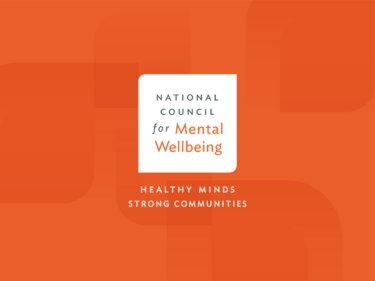FEATURE
Last week, in response to the ongoing overdose crisis facing our country, the Drug Enforcement Administration (DEA) announced the first ever National Fentanyl Awareness Day that was to be recognized on May 10, 2022. This announcement was part of the agency’s efforts to raise awareness, reduce stigma, and educate people on the dangerous threat that fentanyl poses to the safety and health of the American people. The DEA released a video PSA of Administrator Anne Milgram to mark the first National Fentanyl Awareness Day. For more information on the dangers of fentanyl, click here.
Main Stories:
- Join Us for Hill Day at Home 2022
- House Committee Votes in Favor of MAT and MATE Act Amendments
- Senators Introduce the Stop Pills that Kill Act
- Grant Opportunity Open for the Tribal Opioid Response Program
- Comprehensive Health Integration Webinar
Join Us for Hill Day at Home 2022
On Wednesday, June 8, join the National Council as we demonstrate the power of our unified voices at Hill Day at Home 2022! You’ll get to hear from policy experts, receive key legislative updates, and raise the volume on critical issues throughout our field – all for free and from the comfort of your own home. Together, we’ll raise awareness about important legislation and urge lawmakers to invest in critical mental health and substance use care funding. Reserve your virtual seat today!
House Committee Votes in Favor of MAT and MATE Act Amendments
On May 18, the House Committee on Energy and Commerce held a hearing to discuss the Restoring Hope for Mental Health and Well-Being Act, a legislative package aimed at addressing substance use treatment, prevention, recovery, workforce, and more. The Committee voted in favor of adding the Mainstreaming Addiction Treatment (MAT) Act to the package. The MAT Act would remove the X-Waiver requirement and greatly increase access to buprenorphine, a Food and Drug Administration (FDA) approved medication-assisted treatment used to treat opioid use disorder. Additionally, the Medication Access and Training Expansion (MATE) Act, which require health care providers to complete a one-time training on best practices in caring for patients with a substance use disorder as a condition of receiving or renewing a registration to prescribe controlled substances for treatment, was advanced out of Committee. The legislative package is expected to be voted on in the House sometime in June.
Senators Introduce the Stop Pills that Kill Act
Last week, Senators Chuck Grassley (R-IA) Maggie Hassan (D-NH), John Cornyn (R-TX), and Dianne Feinstein (D-CA) introduced the Stop Pills That Kill Act (S.4151). The bill would impose penalties, identical to those impacting methamphetamine, for the manufacture and/or facilitation of manufacturing counterfeit pills that contain fentanyl, an analogue of fentanyl, or a counterfeit substance l. Additionally, S.4151 would direct the Attorney General to work with the DEA and the Office of National Drug Control Policy to issue an annual report to Congress that would help lawmakers better understand the scope of seizures, investigations, and public awareness of the dangers associated with pills laced with deadly substances.
Grant Opportunity Open for the Tribal Opioid Response Program
Earlier this month, the Department of Health and Human Services (HHS) announced $55 million in funding for the latest iteration of its Tribal Opioid Response (TOR) Grant Program. The purpose of this program is to provide FDA approved medications for the treatment of opioid use disorder in Native American and Alaskan Native Tribes or Tribal Organizations. Additionally, the TOR grant program supports the continuum of prevention, harm reduction, and recovery support services for opioid use and co-occurring substance use disorders for Tribes and Tribal Organizations. To check your eligibility or apply for this grant opportunity, click here.
Comprehensive Health Integration Webinar Next Week
The Center of Excellence for Integrated Health Solutions will hold a webinar with experts in the field on Wednesday, May 25 from 1:00pm –2:00pm on Comprehensive Health Integration: Domains & Constructs. The panel will review current data surrounding integrated care models and explore components of a new and visionary integrated care framework focused on bi-directional and population-based comprehensive health care. This webinar will illustrate principles outlined in a new paper titled, Designing, Implementing, and Sustaining Physical Health –Behavioral Health Integration: The Comprehensive Healthcare Integration Framework. Register for the webinar here.
ADVOCACY CORNER
Join the National Council Ambassador Network. Members of the National Council’s Ambassador Network are superstar advocates dedicated to cultivating strong relationships with their elected federal officials. As one of our Ambassadors, you will maximize our collective advocacy impact on Capitol Hill and help advance policies that strengthen mental wellbeing and support treatment organizations nationwide. To apply to be a National Council Ambassador, click here.
HAPPENING ON THE HILL
HHS Recovery Innovation Challenge: On May 18, HHS announced its first ever behavioral health Recovery Innovation Challenge. The goal of this challenge is to identify innovations developed by peer-run or community-based organizations that advance and promote recovery. HHS asks participants to share information on the practices they use to advance recovery and demonstrate how their techniques build on SAMHSA’s recovery guidelines. Additionally, participants are asked to share how they have helped people overcome challenges by incorporating recovery into their behavioral health services system. Enter the challenge by submitting a written statement no later than July 15 for the chance to win a cash prize. For more information here.
By Mollie Laird, Policy Associate

